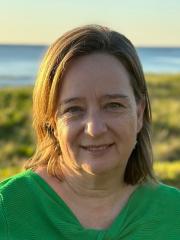
Moira Zeilinga holds a Bachelor of Engineering (Civil), a Graduate Diploma in Municipal Engineering, and a Master of Business Administration. Moira has over 30 years of engineering industry experience in Queensland Local Government and Water and Wastewater engineering. She has developed several asset criticality frameworks to assist Local Government in understanding criticality and risk for water and wastewater infrastructure as well as other infrastructure assets such as roads, drainage, parks equipment, buildings and other community assets. Moira commenced her part-time PhD as she is passionate about helping the industry be better prepared for managing and understanding risk so they can avoid customer and operations disruptions during periods of uncertainty.
Researcher biography
Major disaster risk events are increasing in frequency and severity, and this is a global issue as identified by the World Economic Forum Global Risk Report 2023. These major disruptive risk events can substantially impact, both positive and negative, on normal industrial operations, individual and societal activities, and the environment. The Sendai Framework for Disaster Risk Reduction was adopted in 2015 by the United Nations Office of Disaster Risk Reduction. A key priority within the Sendai Framework is “understanding disaster risk” in a manner that enables the assessment, prevention, mitigation, preparedness, and response to major disaster events.
Moira's research is aimed at capturing and reviewing the current state of knowledge on major disruptive risk and identify whether there is a distinguishment between major disaster and major disruptive risks. She will also be capturing industries' understanding of major disruptive risk with the aim to contribute towards formal literature, help industry better define and understand major disruptive risk and identify any gaps or research opportunities.
Supervisors
Professor Maureen Hassall - Sustainable Minerals Institute
Professor Paul Lant - School of Chemical Engineering
